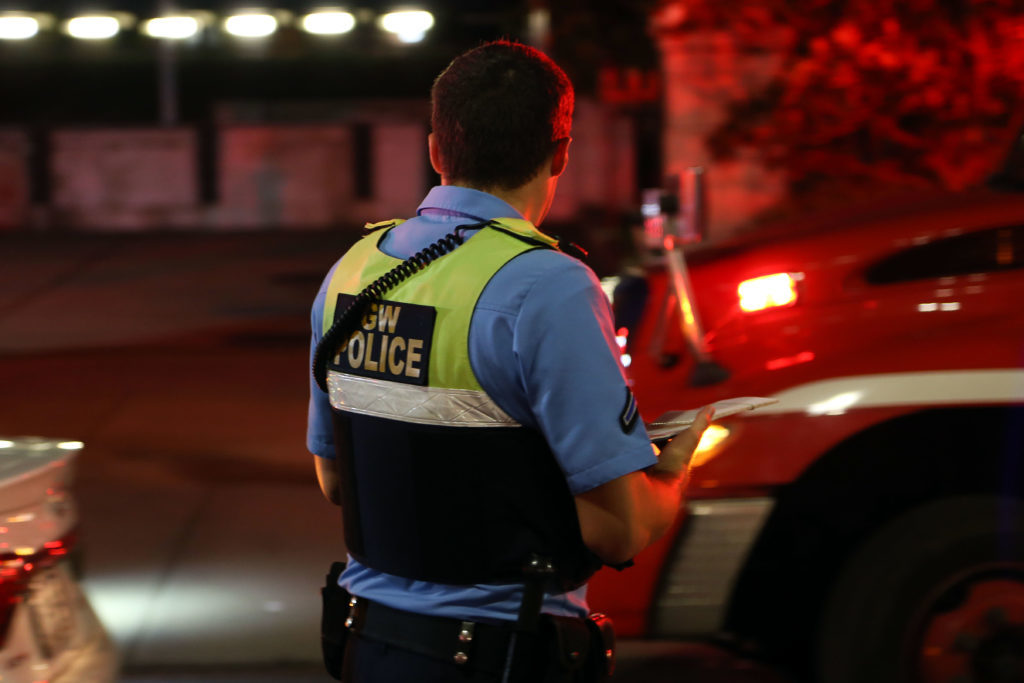The number of students referred to campus authorities for drug violations increased by roughly 9 percent over the past year.
A total of 164 students were referred to campus authorities in 2017 for violating drug laws, a bump from 151 the year before, according to the annual security report released Friday. Darrell Darnell, the senior associate vice president for safety and security, said the uptick can be attributed to students failing to grasp the difference between “decriminalized” and “legal” marijuana.
“I think it’s just education,” Darnell said. “Education and training, getting students to understand that it’s still illegal in the District of Columbia and there’s a difference between legal and decriminalized.”
The city decriminalized marijuana in 2015, but people younger than 21 years old cannot possess marijuana, while those older than 21 years of age cannot sell marijuana or possess more than two ounces.
Adult recreational use of marijuana is no longer a criminal offense in D.C., but more than 20 percent of the city’s land is controlled by the federal government, which continues to view the cultivation, distribution and consumption of cannabis as illegal.
University policy remains consistent with federal law and prohibits the possession or consumption of marijuana regardless of age, according to the University’s student code of conduct.
Campus security experts said students are often confused at their respective schools about marijuana laws because students don’t understand that even if the drug is legal in a state, it may not be legal at their school.
Lianne Tuomey, the chief of police at the University of Vermont, said the state legalized marijuana use in July, but the campus adheres to federal legislation, which bans recreational and medical use. Tuomey said this discrepancy accounts for several public consumption violations on campus because students are misinformed.
“We’ve come across more people publically consuming marijuana and have had to educate them that they can’t because it’s only for private consumption,” she said. “We’re basically enforcing the federal laws around that but we’re not charging it federally.”
Tuomey said that because of the confusion the law has created, her department has decided against enforcing criminal or civil violations on campus and will combat the issue through an educational partnership with other departments of the university, including officer visits to residence halls.
“We’re all working together on communicating what the law really is and what it means for our students,” she said. “We’ve posted the law on our website, we’ve talked a little bit about it when we have meetings in the residence halls and we answer questions and make sure to explain it.”
Jared Bilyeu, a patrol sergeant at Oregon State University, said the school has not seen similar increases in reported violations since the state legalized recreational marijuana use in 2015, but incoming students are often confused about university policies regarding the substance.
“That seems to be our biggest pitfall,” he said. “There are a lot of people coming in and saying ‘I thought it was legal in Oregon,’ but what they’re not connecting it with is the university violation.”
Dana Perrin, the assistant director of public safety at the University of Rochester, said students at Rochester do not face the same confusion over marijuana laws as students in D.C. because New York state has not decriminalized marijuana.
But he said that educational institutions that receive federal money are obligated to abide by federal laws, so even if substances like marijuana are legal in the area surrounding a campus, the federal money the institution receives would negate the ability to use the substance on-site.
“That’s one of the things that’s going to come out long-term as more and more states pass this legalization,” he said.





